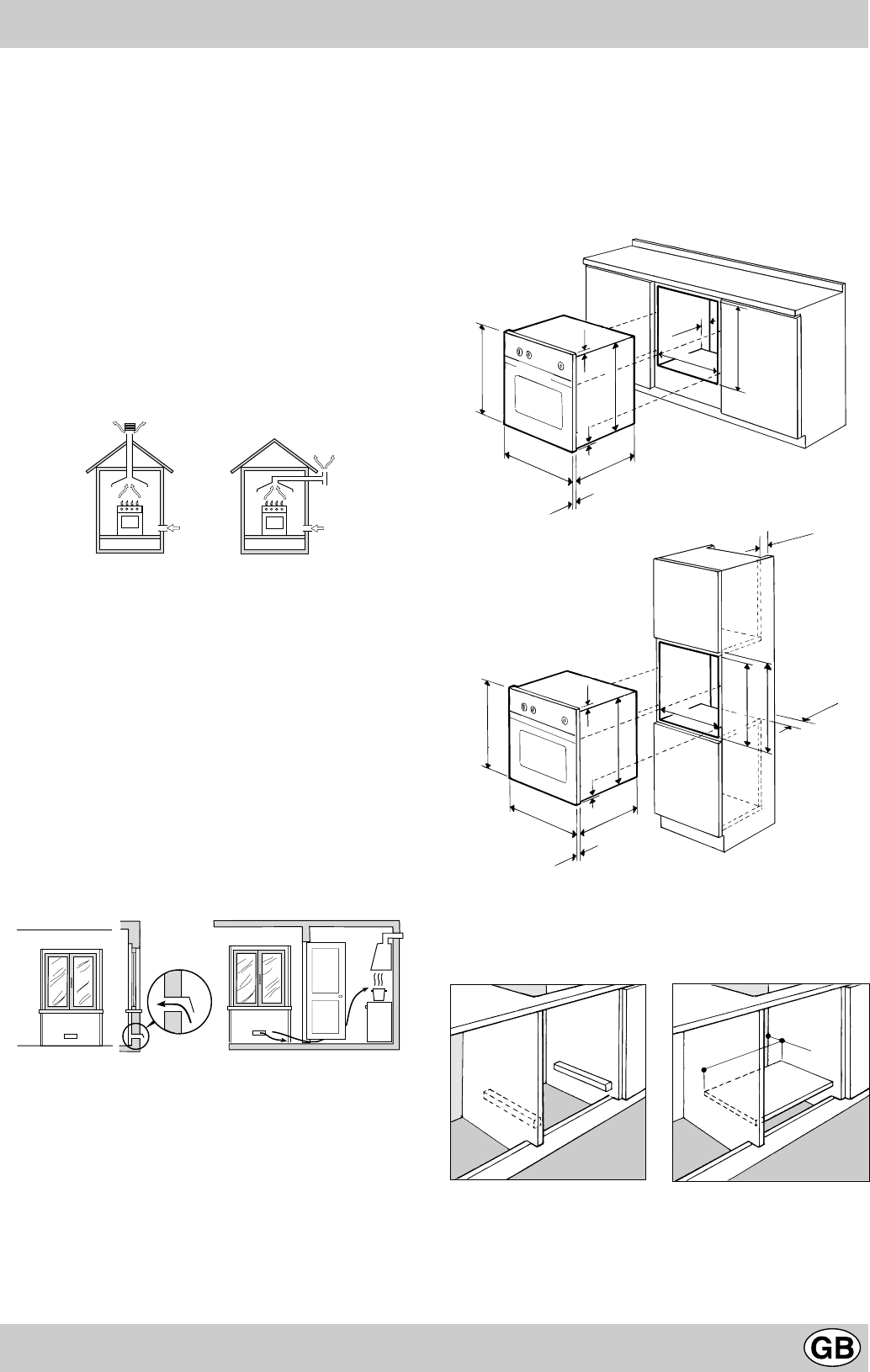
19
Instalation
The appliance must be installed only by a qualified
person in compliance with the instructions provided.
The manufacturer declines all responsibility for improper
installation which may harm persons and animals and
damage property.
Important: The power supply to the appliance must be
cut off before any adjustments or maintenance work is
done on it.
Positioning
Important: this appliance may be installed and used only
in permanently ventilated rooms in compliance with cur-
rent current National Norms. The following requirements
must be observed.
a) The room must be equipped with an exhaust system
that vents the combustion fumes to the outside. It may
consist of a hood or an electric fan that automatically
starts each time the appliance is turned on.
A flue or branched flue system Directly
(only for cooking appliances) to the Outside
b) The room must also have a system that allows for
proper air circulation, needed for combustion to occur
normally. The flow of air needed for combustion must
not be less than 2 m3/h per kW of installed power. The
air circulation system may take air directly from the
outside by means of a pipe with an inner cross section
of at least 100 cm2; the opening cannot under any cir-
cumstances be blocked accidentally (Fig.A). The sys-
tem can also provide the air needed for combustion by
indirect means, i.e. from adjacent rooms fitted with air
circulation tubes as described above. However, these
rooms must not be common rooms, bedrooms or rooms
with a fire hazard (Fig. B).
Detail A Adjacent Room
room to be ventilated
Fig. A Fig. B
Examples of Ventilation OpeningsIncreased Opening
for Comburent Air Between Door and Floor
c) Liquefied petroleum gas is heavier than air and, there-
fore, settles downwards. Thus, rooms containing LPG
cylinders must also be equipped with apertures to the
outside for ventilation of gas in the event of leaks. LPG
cylinders must not, therefore, be installed or stored in
rooms or storage areas that are below ground level
(cellars, etc.) whether they are partially or completely
full. It is a good idea to keep only the cylinder being
used in the room, positioned so that it is not subject to
heat produced by external sources (ovens, fireplaces,
stoves, etc. ) which could raise the temperature of the
cylinder to above 50°C.
Installation of Built-in Ovens
In order to ensure that the built-in appliance functions prop-
erly, the cabinet containing it must be appropriate. The
figure below gives the dimensions of the cut-out for instal-
lation under the counter or in a wall cabinet unit.
In order to ensure adequate ventilation, the back panel of
the cabinet unit must be removed. Installing the oven so
that it rests on two strips of wood is preferable. If the oven
rests on a continuous, flat surface, there must be an ap-
erture of at least 45 x 560 mm.
The panels of the adjacent cabinets must be made of heat-
resistant material. In particular, cabinets with a veneer ex-
terior must be assembled with glues which can withstand
temperatures of up to 100 °C.
In compliance with current safety standards, contact with
the electrical parts of the oven must not be possible once
it has been installed.
A
595 mm.
595 mm.
24 mm.
545 mm.
5 mm.
567 mm.
23 mm.
593 mm.
45 mm.
558 mm.
595 mm.
595 mm.
24 mm.
545 mm.
5 mm.
567 mm.
23 mm.
575-585 mm.
558 mm.
595 mm.
45 mm.
min.
45 mm.
min.
560 mm.
45 mm.


















